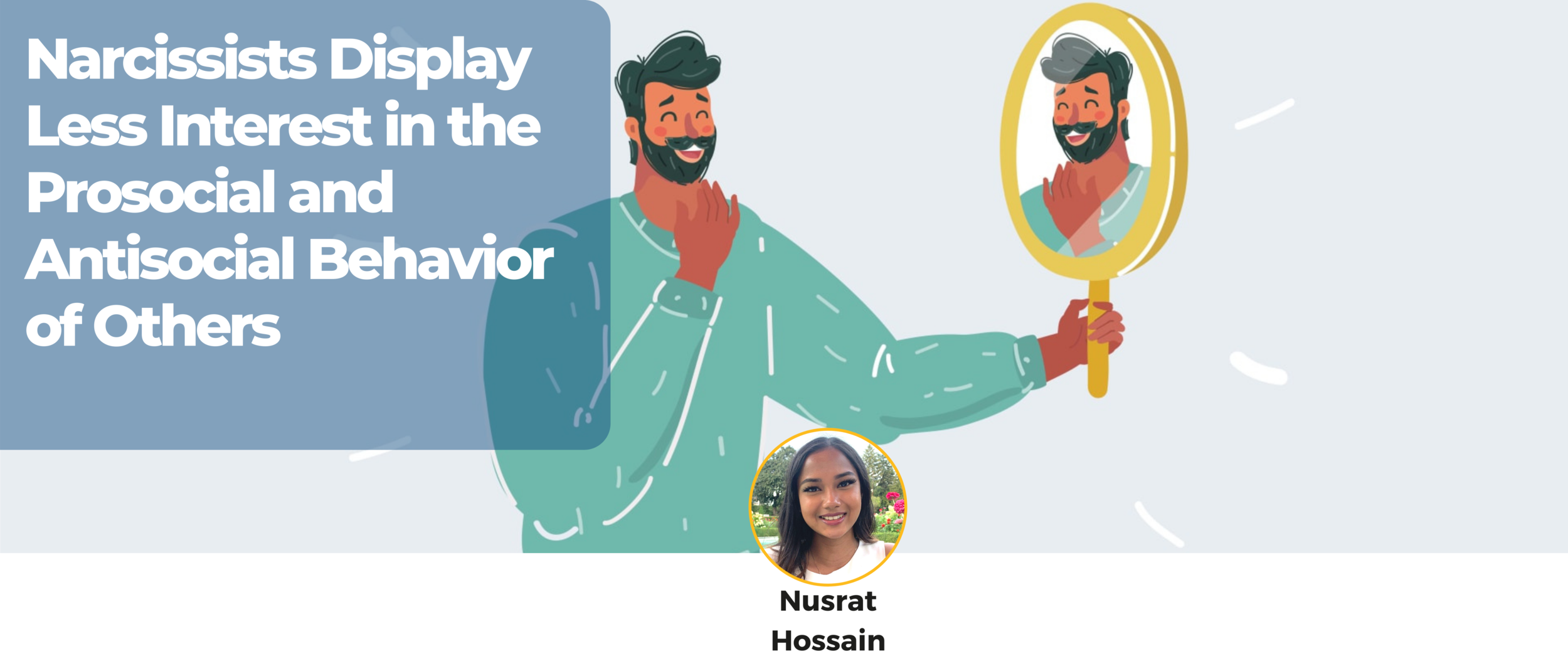“Narcissism is voluntary blindness, an agreement not to look beneath the surface.”
— Sam Keen
A paper published in Personality and Social Psychology Bulletin found that narcissists are hypo-responsive to others’ social behaviors, making them apathetic to what happens around them. This study was led by Jiafang Chen at the University of Amsterdam.
The researchers hypothesized that narcissistic individuals would either be hypo-responsive or hyper-responsive to others’ social behaviors. On the one hand, narcissists are primarily motivated by power and success, lacking a significant interest in anything unrelated to self-advancement.
On the other hand, a narcissists desire for power and uniqueness may be threatened when others behave “out of line”. This may cause them to be hyper-responsive towards others’ antisocial behavior in order to diminish any potential threat to their own power.
This paper observed narcissistic individuals’ responsiveness to others’ social behaviors across four studies. In study 1, the authors exposed the narcissistic individuals to others’ antisocial behavior to examine whether they would be hypo-responsive or hyper-responsive to the antisocial behaviors.
Study 2 was used to examine whether narcissistic individuals would be hypo-responsive or hyper-responsive to others’ prosocial behavior compared to control behaviors. In both study 1 and 2, the narcissistic individuals completed moral character evaluations of other people, in order for the authors to determine whether the narcissists were being hypo-responsive or hyper-responsive to the others’ behaviors.
Study 3 examined narcissistic individuals’ responsiveness to others’ antisocial versus prosocial behaviors and how this responsiveness manifests itself in their own behavior through reward and punishment. Study 4 was a replication of study 3.
The results revealed that study 1 found that individuals ranking high in narcissism were more hypo-responsive to others’ antisocial behavior compared to low ranking narcissists. Similarly, study 2 found that highly narcissistic individuals were more hypo-responsive to others’ prosocial behaviors compared to low narcissists.
Study 3 found that low narcissists were significantly more likely to give others high reward in a prosocial condition versus an antisocial condition, compared to high narcissists. It also found that low narcissists were more likely to give others punishment in an antisocial condition versus a prosocial condition, whereas high narcissists showed no difference between the two conditions.
Therefore, study 3 also found high-ranking narcissists to be more hypo-responsive to others’ prosocial and antisocial behaviors compared to low-ranking narcissists. Finally, study 4 replicated the findings from the previous three studies, in which high narcissists were found to be hypo-responsive.
These findings provide evidence for the theory that narcissism has a negative correlation with responsiveness. That is, as an individual ranks higher in narcissism, they become less responsive to others’ social behaviors compared to individuals ranking low on narcissism.


